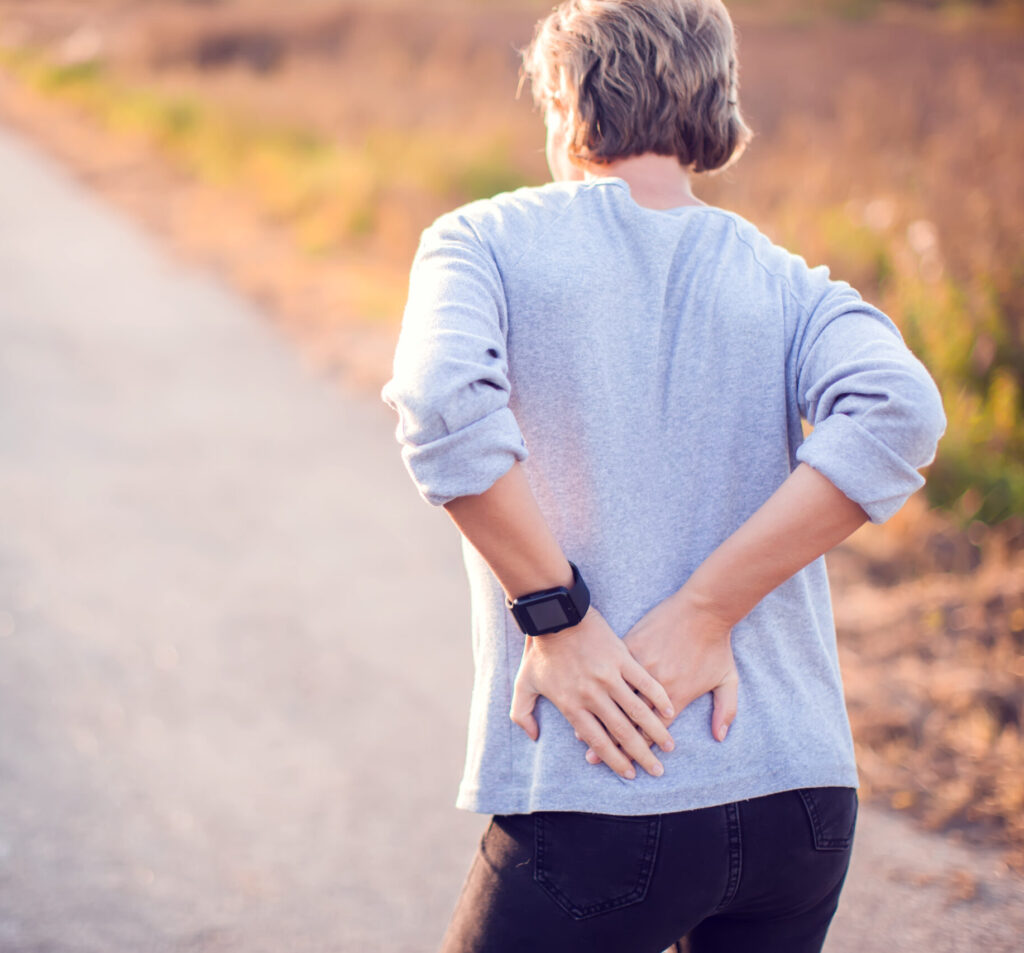Relief For Hip Pain:
Understanding, Treating, and Managing
Discover Lasting Pain Relief For Hip Pain At Advanced Pain Solutions
Hip pain isn’t merely a discomfort; it’s a significant obstacle in daily life. The spectrum of hip discomfort, whether it’s a constant ache, a sudden jolt, or a persistent discomfort, has a notable impact on mobility, physical activities, and overall quality of life. It’s not just about the sensation itself; it’s about the disruption it causes in daily life, affecting movements, sleep, and routine activities, creating a pervasive concern and challenge.
This type of pain in the hip doesn’t just alter the way you move; it infiltrates your everyday experiences, making it tough to maintain regular activities or even achieve restful sleep. The physical limitations it imposes can significantly affect the quality of your life, making it crucial to address and alleviate this discomfort for improved overall well-being.

Ready To Get Started?
Request your new patient consultation today to find out what Advanced Pain Solutions can do to help you find lasting relief.
What Is Causing My Hip Pain?
Hip pain can stem from various sources, manifesting as a symptom of certain conditions, biomechanical issues, or trauma. Understanding the nature of your hip pain and its specific location becomes instrumental in determining the root cause, enabling effective treatment.
- Biomechanical causes of hip pain:
- Sitting with your legs crossed for an extended period: Prolonged sitting with legs crossed can lead to hip discomfort due to uneven pressure distribution and restricted blood flow to the hips. This can create tension in the hip flexors and affect posture over time, contributing to discomfort and potential strain.
- Abnormal pelvic tilt when standing or sitting: An irregular pelvic tilt can strain the hip joint and supporting muscles. Anterior pelvic tilt, where the pelvis is tilted forward, can place excessive pressure on the hip flexors, while posterior tilt can strain the hamstrings and affect overall hip alignment.
- Leg length discrepancy: A disparity in leg length can cause an imbalance in weight distribution, leading to strain in the hips. This imbalance can affect gait and cause overuse of certain muscles, resulting in discomfort.
- Muscular imbalances: Discrepancies in muscle strength between hip flexors, extensors, abductors, or adductors can create irregular tension, leading to strain and potential pain in the hip joint.
- Abnormal gait: Walking with an irregular gait can cause improper weight distribution and increased stress on the hip joint, potentially leading to discomfort and eventual pain.
- Traumatic causes of hip pain:
- Auto accidents: Collisions or injuries during car accidents can directly impact the hip, causing bruises, fractures, dislocations, or muscle strains that result in acute or chronic hip pain.
- Slips and falls: Falling can cause various injuries, from minor muscle strains to more severe hip fractures, leading to acute or chronic discomfort in the hip region.
- Sports injuries: Physical activities or sports-related impacts, particularly those involving sudden or repetitive hip movement or trauma, can lead to various hip injuries, from strains and sprains to fractures.
- Repetitive motions over an extended period: Engaging in repetitive motions, especially in physically demanding jobs, can strain the hip joints, causing chronic discomfort due to overuse and potential injuries.
- Conditions that cause hip pain:
- Arthritis: Both osteoarthritis and rheumatoid arthritis can affect the hip joint, causing pain, stiffness, and reduced range of motion.
- Bursitis: Inflammation of the bursae in the hip joint can result in sharp or intense pain during movement.
- Piriformis syndrome: Irritation or compression of the sciatic nerve by the piriformis muscle can lead to pain, numbness, or tingling in the hips.
- Muscle strain: Overexertion or sudden movements can strain or tear muscles around the hip, resulting in acute pain.
- Tendinitis: Inflammation or irritation of the tendons can cause hip pain, especially during movement or physical activity.
- Labral tears: A tear in the cartilage surrounding the hip socket can cause sharp or deep-seated pain during specific movements.
- Avascular necrosis (osteonecrosis): Reduced blood flow to the hip bone can lead to bone death and subsequent hip pain.
- Iliotibial (IT) band tendinitis: Inflammation of the IT band can cause pain on the outside of the hip or knee during movement.
- Hip impingement: Abnormal contact between the hip ball and socket can cause pain, especially during certain hip movements.
Understanding the origins of hip pain from these factors helps in diagnosing and effectively treating the condition, catering to the source of discomfort and addressing it appropriately.
What Are The Symptoms Of Hip Pain?
The symptoms of hip pain often manifest in diverse forms, and oftentimes, the issue in the hip can generate pain or discomfort in other regions, complicating the diagnosis process. Dysfunction in the hip can exhibit various symptoms, including:
- Thigh: Discomfort or pain felt along the front, back, or sides of the thigh could signify hip joint issues. This can range from a dull ache to sharp pain.
- Groin: Pain emanating from the groin area, especially during movement or weight-bearing, might indicate problems within the hip joint.
- Inside and Outside of the Hip Joint: Pain within the hip joint itself, whether deep inside or on the outer side, could point to conditions like arthritis or bursitis, respectively.
- Buttocks: Discomfort experienced in the buttocks, especially when walking, sitting, or standing, can signal hip-related concerns.
- Low Back: Hip issues can often refer pain to the lower back, causing dull or stabbing discomfort in the lumbar region.
- Knee: Dysfunction in the hip can lead to radiating pain in the knee, which might indicate nerve-related problems or referred pain from hip joint issues.
Moreover, apart from localized pain, symptoms of hip dysfunction can include reduced range of motion, making it challenging to walk, bend, or perform day-to-day activities. A grinding, clicking, or popping sensation when moving the leg might be an indicator of underlying hip joint problems, potentially associated with conditions like labral tears, arthritis, or hip impingement. These symptoms collectively hint at a range of issues that can affect the functionality and mobility of the hip joint.


How Is Hip Pain Treated?
Addressing hip pain starts with a comprehensive diagnostic approach at our Redmond, Oregon clinic. Our skilled medical team conducts an in-depth evaluation, including a thorough medical history review, comprehensive consultation, detailed physical examination, and a functional assessment. This helps identify the root cause of your hip pain, allowing us to customize a precise treatment protocol to alleviate your discomfort and enhance your hip functionality.
At Advanced Pain Solutions, our approach centers on offering effective, natural care. Our treatment protocols are specifically designed to encourage natural healing and restoration of your hip, allowing you to regain your active lifestyle without the reliance on addictive medications or invasive surgical procedures. We avoid long-term opioid usage, corticosteroid treatments, and surgical interventions, opting instead for minimally invasive, non-surgical methods to alleviate your discomfort.
Our goal is to help the Central Oregon community by providing care aimed at restoring hip function and diminishes pain, steering clear of potentially harmful medications or invasive surgeries. Our doctors are committed to formulating a tailored treatment plan based on your unique diagnosis, focusing on enhancing your hip function and relieving pain without resorting to aggressive medical procedures.
Treatment methods may include the following services and treatments offered by Advanced Pain Solutions:
Chiropractic Care: Our chiropractic care is designed to address hip pain by optimizing spinal alignment and function, reducing nerve interference, and promoting natural healing.
Rehabilitation: Tailored physical rehabilitation programs are offered to improve hip flexibility, strength, and overall function.
Spinal Decompression: This treatment helps alleviate hip pain by gently stretching the spine to relieve pressure on the affected discs and nerves, promoting pain relief and healing.
Physiotherapy: Tailored programs aimed to improve mobility, strength, and functionality, focusing on specific hip-related exercises.
Knee Bracing: Customized knee braces may be recommended to stabilize the hip and provide support during the healing process.
Back Bracing: Custom back braces can offer support and stabilization to reduce pressure on the hips during recovery.
Other treatment options may be recommended based on your individual diagnosis and needs.
